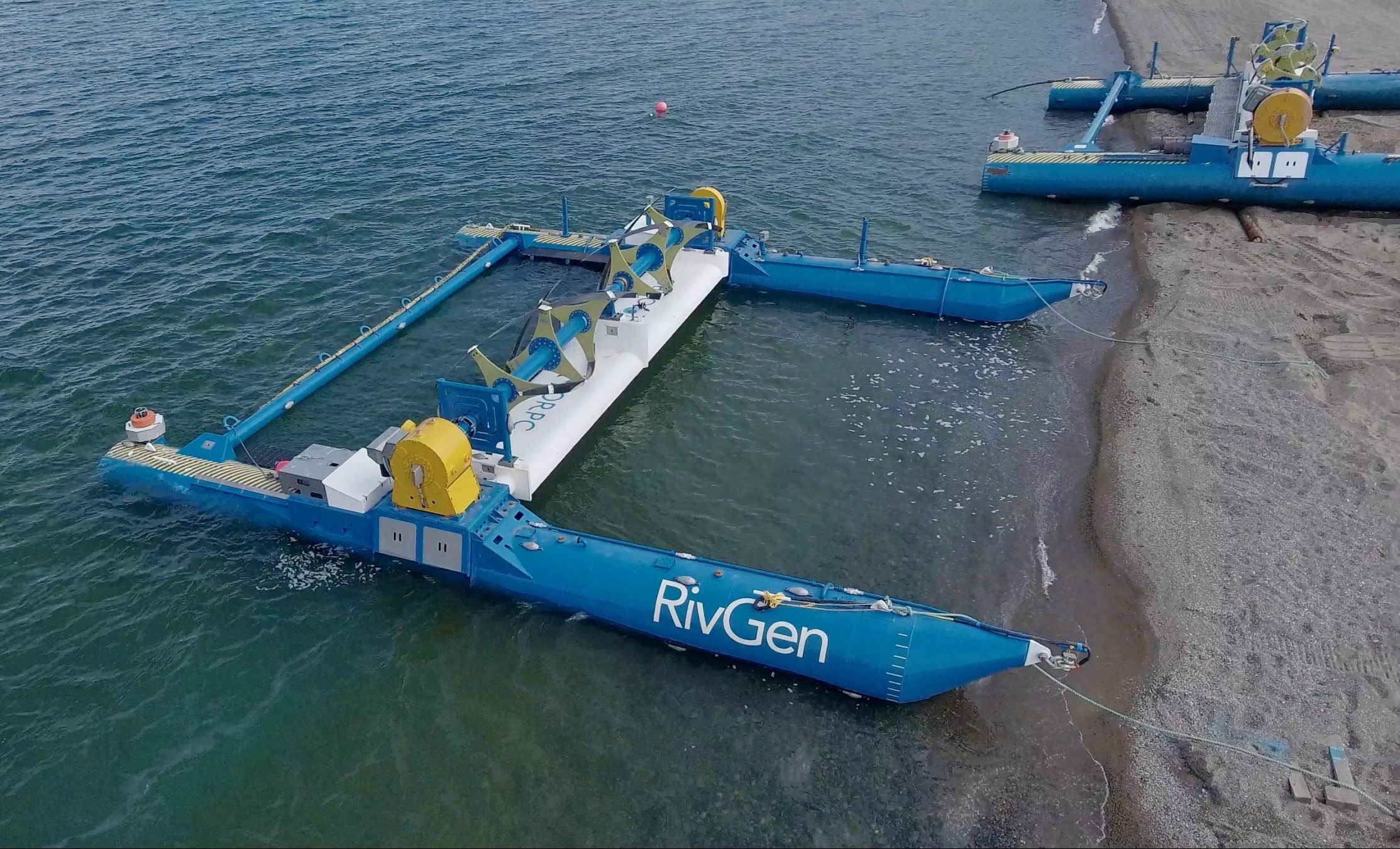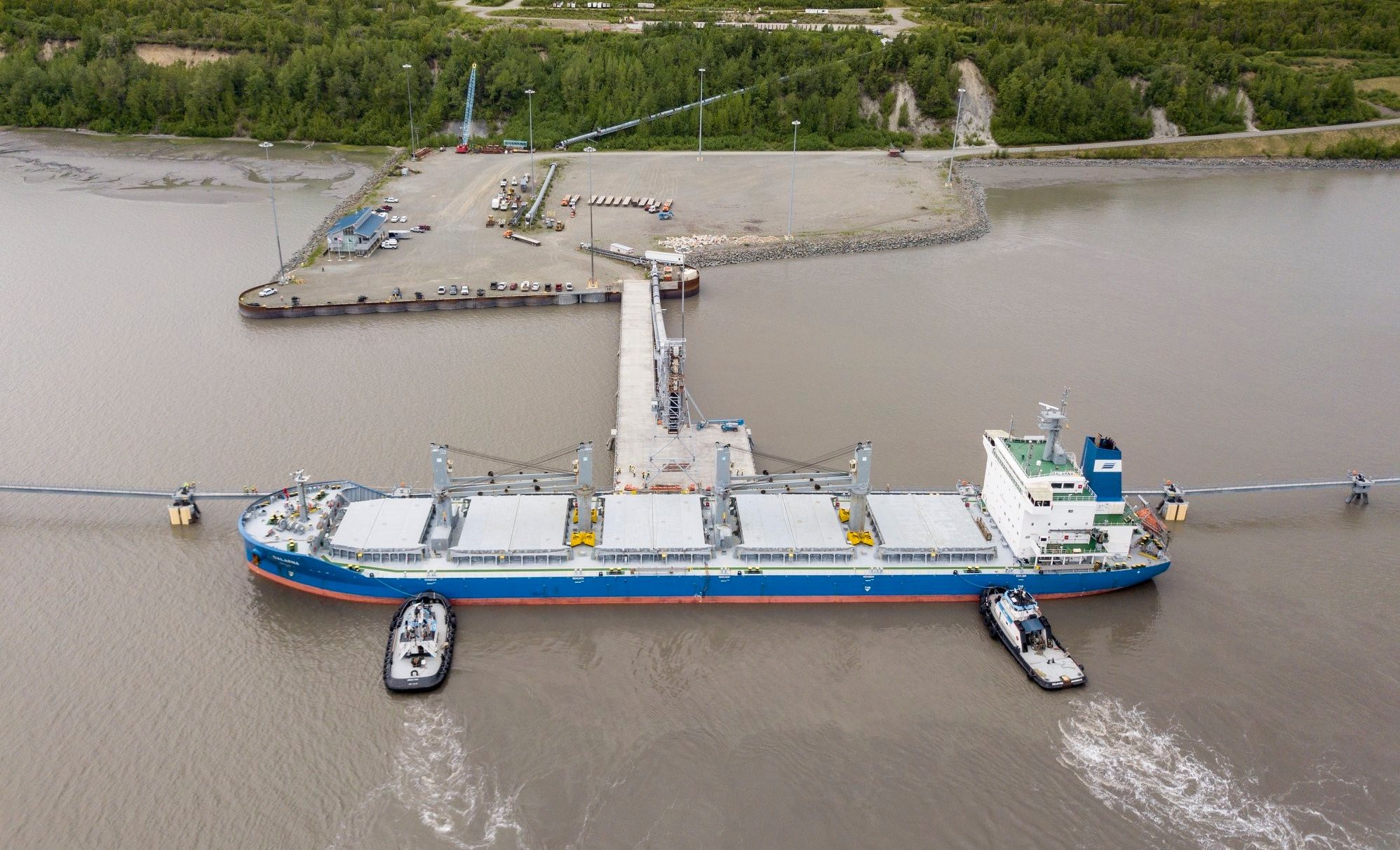ORPC Partnering with Matanuska-Susitna Borough to Trial RivGen® Power System

06.04.2022
ORPC, Inc., and the Matanuska-Susitna Borough announced a partnership today to test ORPC’s RivGen Power System at the Upper Cook Inlet industrial and commercial port facility of Port MacKenzie. The RivGen System, which harnesses clean, sustainable energy from free-flowing tidal and river currents, will be trialed to power cathodic protection systems which safeguard the Port’s underwater assets. ORPC’s proven RivGen Power System in Igiugig, Alaska, is the longest operating hydrokinetic project in the Americas.
“It is a win for everyone: the State, ORPC, and Port MacKenzie,” said Matanuska Susitna’s Port Director, Therese Dolan. “This energy source is virtually limitless and could cover all the Port’s electrical costs, in particular cathodic protection, and provide an energy source for manufacturing in the Port District.”
ORPC’s Alaska Director of Development, Merrick Jackinsky added, “Cook Inlet’s strong tides have been a driver for tidal power developers for a long time, and ORPC is grateful to be a part of the responsible development of Alaska’s resources.”

Current cathodic systems at Port MacKenzie protect its assets from the corrosive effects of the saltwater environment, requiring power from the local electrical grid or a diesel power plant to operate. ORPC power systems harness predictable power from tidal and river currents, and can provide sustainable, baseload electricity needed to power these systems. If the testing goes well, Port MacKenzie will be the first port in the United States to harness tidal energy for local operations and economic development opportunities.
ORPC will carry out environmental reviews and analyses of Cook Inlet beluga whales as the company initiates the Port MacKenzie project as well as its tidal energy project at East Foreland, Cook Inlet, under a Federal Energy Regulatory Commission preliminary permit. ORPC has initiated an adaptive management process in consultation with federal and state regulators for assessment of risks and impacts to belugas to inform this work.
Port MacKenzie, situated on 14 square miles of uplands dedicated solely to commercial and industrial development, can accommodate deep draft vessels year-round thanks to the self-scouring geography of the seafloor, and provides a more cost and time efficient route for various cargo. An almost 15-acre barge dock combined with its vast uplands make Port MacKenzie ideal for large industrial projects and valuable exports.
In addition to the efforts at Port MacKenzie, ORPC’s Alaska presence includes a project office in Anchorage, an operating project in the Village of Igiugig, tidal energy development activities in the East Foreland area of Cook Inlet in partnership with Homer Electric Association, and a federally-funded project to develop a tidal energy based microgrid in the City of False Pass.
ORPC’s Igiugig partnership exemplifies how ORPC can provide baseload renewable energy to remote communities elsewhere in Alaska as well as worldwide, replacing diesel-fueled microgrids, lessening diesel dependence, and lowering carbon emissions, noise, and environmental risk. Over 700 million people worldwide depend upon diesel microgrids, and two billion people have little or no access to electricity.

